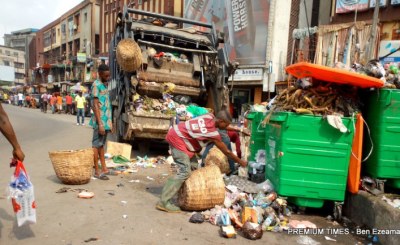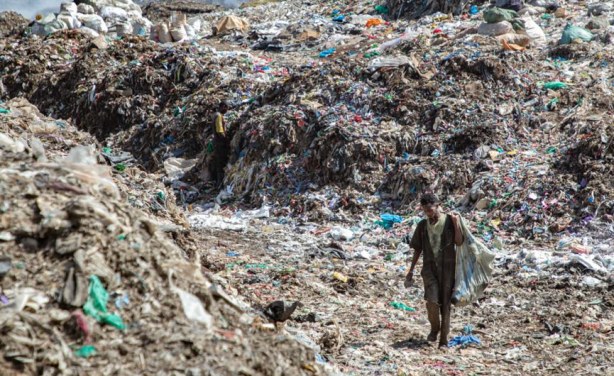-
Nigeria: Waste Pickers in Lagos Tell Their Stories About a Dangerous Existence
The Conversation Africa, 31 August 2022
Lagos, Nigeria's economic hub, with a population of more than 15 million, generates an estimated 12,000 metric tonnes of waste daily, which comes to about 4.3 million tonnes of… Read more »
-
Nigeria: Informal Waste Management in Lagos Is Big Business
The Conversation Africa, 12 January 2021
The megacity of Lagos has an estimated population of 24 million. And it's constantly growing, putting additional strain on a city that already has serious challenges. They include… Read more »
-
Nigeria: Ridding the Planet of Plastic Saves You Too
Daily Trust, 3 October 2021
For over a year, Muniratu Raimi has been gathering plastic bottles. Plastics will determine whether she gets a roof over her head or gets thrown out by her landlord. Read more »
Lagos Waste Pickers Speak About Their Dangerous Work
Nigeria's economic hub, with a population of more than 15 million, generates an estimated 12,000 metric tonnes of waste daily, which comes to about 4.3 million tonnes of waste annually. This ends up on the streets and in the city's four officially designated landfills, writes Olanrewaju Dada for The Conversation.
Waste pickers often work without protective gear, unassisted, and without access to primary care or first aid and employment regulations. They operate on the margins of or outside the formal process of managing solid waste, but play vital roles, especially in reuse, recycling, and cost recovery. They work in unsheltered environments and are unprotected from severe heat, sun, rain, and cold weather.
These conditions have been linked with cardiovascular disorders. Likewise, exposure to dust, micro-organisms, and microbial toxins can result in chronic respiratory diseases, skin problems and gastrointestinal illnesses.
"Nigerian authorities don't fully appreciate the beneficial role of waste pickers. These workers contribute to environmental sustainability by reducing wastes in dumpsites and providing material for recycling and reuse. But they are never considered when waste management policies are designed. Waste management authorities, NGOs, and multinational organizations must ensure that potable water, sanitary facilities, and clinics are provided at landfills," adds Dada.
InFocus
-
Recyclers play an important role in helping manage an integrated waste management system by stopping waste from entering landfills. ... Read more »
-
The last time Nigeria reported a novel antimicrobial compound of microbial origin was in 1986, under a project commissioned by Pfizer. The compound was used t Read more »
-
Toxic waste and electronic waste (e-waste) is generated from a wide range of industries - such as health, hydrocarbon or manufacturing - and can come in many forms, such as sludges ... Read more »







